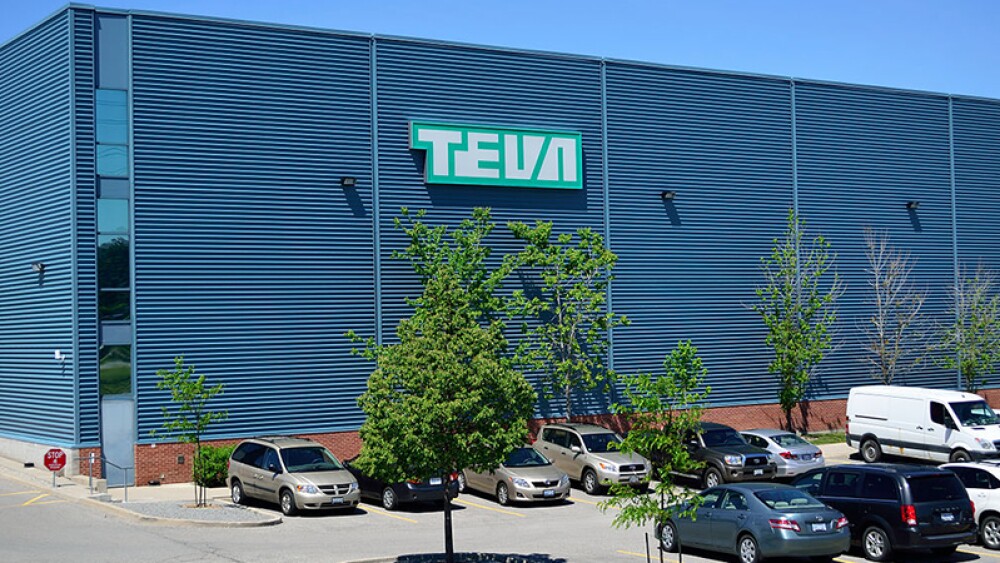July 24, 2017
By Alex Keown, BioSpace.com Breaking News Staff
TEL AVIV – Troubles continue for Israel-based Teva Pharmaceuticals . On Sunday, the company said it plans to terminate up to 350 of its 7,000 employees as the company undergoes a strategic reorganization to improve competitiveness.
The majority of the employees that could be terminated are likely to be in the company’s production department, Reuters said this morning. The company maintains two large production facilities in Israel employing about 4,000 people. Although the 350 employee number has not officially been confirmed by Teva, multiple news sites are reporting that number, citing internal Teva sources. In a statement issued to Reuters, Teva’s acting chief executive officer Yitzhak Peterburg said the company is committed to doing all it can to “guarantee that its work sites in Israel were competitive, efficient and sustainable for the long term.” The reorganization is being undertaken as part of what is being called “the complex business reality faced by the pharmaceutical industry as a whole, and by Teva in particular, in recent years.” The layoffs and reorganization will address redundancies found throughout its operations, Teva said, according to the Post.
In its announcement, the company said the terminations will hit management as well as employees at the two Israel-based production facilities in Kfar Saba and Ramat Hovav, according to the Jerusalem Post. Despite the layoffs, Peterburg said in the statement that the company will continue to invest in those sites in order to remain competitive in a global market.
Shares of Teva have fallen slightly in morning trading. The stock is trading at $32.59 per share as of 11:08 a.m. Teva’s stock has been on a roller coaster ride of sorts lately, particularly as rumors were published that AstraZeneca CEO Pascal Soriot was leaving that company to helm Teva. Earlier this month though, Soriot and AstraZeneca put that rumor to rest. That leaves Teva, the world’s largest generic drug maker, without a permanent CEO. In February, the company announced Erez Vigodman had abruptly left his position had abruptly left his position at the helm of Teva after only three years on the job.
During his time at the helm of Teva, Vigodman oversaw a number of deals that were called into question, including the acquisition of Actavis , the generic drug business of Allergan for $40.5 billion—a price that many analysts thought was too high. The company has also been embroiled in legal action with Mexican drugmaker Rimsa and in December paid out $519 million to settle parallel civil and criminal charges that it allegedly violated the Foreign Corrupt Practices Act when it paid bribes to foreign government officials in Russia, Ukraine, and Mexico between 2002 and 2012.
Additionally, and perhaps more important to the company’s bottom line, is the challenge to its top-branded drug, Copaxone, which is used to treat multiple sclerosis. The drug accounts for about 16 percent of Teva’s sales, but is facing a patent challenge by a generic drug developed by Novartis and rival Mylan .





